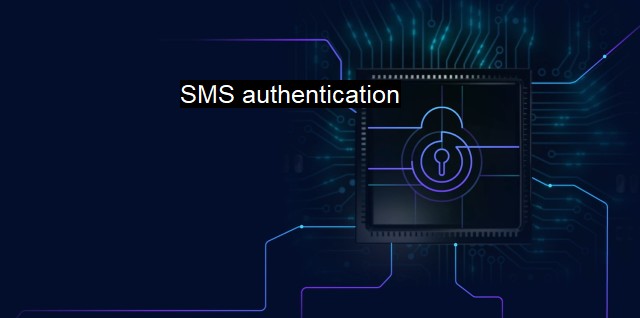What is SMS authentication?
The Importance of SMS Authentication in Cyber Security and Antivirus: Understanding its Definition, Working, and Security Concerns
SMS authentication, also known as SMS-based two-factor authentication (2FA), is a security process through which users can verify their identities by providing a unique code that is sent to their mobile phones via a text message. the method often works as an additional layer of security above and beyond classic username and password protection.Information is highly susceptible to online theft and other malicious activities that can occur over insecure platforms. To counteract these intrusions successfully, it's imperative to employ robust mechanisms such as SMS authentication. The goal of this enhanced security measure is to prevent unauthorized persons or robots from getting through to users' sensitive data.
The process of SMS authentication begins when a user enters their login information into a system, such as a website or an app. After the login information is accepted, the system triggers an automated message, which contains a unique numeric or alphanumeric code, to be sent to the user’s linked mobile number. The user then enters the received code back into the system. Only upon successful verification of the entered code against the sent code will the user gain full access to the platform. Through this mechanism, SMS authentication helps determine not only something the user knows (the username and password), but also something the user has (the mobile phone).
The main advantage of SMS authentication is its ease of use, and the fact that it uses hardware (the mobile phone) that nearly everyone already possesses. What is more, since most users have their mobile phones on them at all times, adding an extra layer of protection does not yield a greater inconvenience. even if malicious hackers can figure out a user's password, they would need the user's mobile device as well to get hold of that unique code sent by SMS, making it a lot tougher to gain unauthorized access.
Although SMS authentication has proven to be a valid and useful method in cybersecurity protection, it is not infallible. It could be potentially thwarted by a sophisticated cybercriminal using methods such as a SIM-swap scam, where the criminal tricks a mobile carrier into transferring a user’s phone number to a new SIM card, which the criminal controls. Alternatively, a criminal could carry out a man-in-the-middle attack, where they intercept the SMS messages containing the authentication codes. Consequently, while SMS authentication is a robust security measure, it should not be seen as the ultimate fix for online security issues.
In the realm of antivirus, SMS authentication also plays a vital role. Various antivirus software now utilise SMS authentication to further secure user information. For instance, antivirus software can be programmed to send an SMS notification whenever suspicious activities on the user’s system are detected. Via these notifications sent through SMS, antivirus software can instantly alert the users about the possible threat so they may act accordingly to protect their sensitive data.
Despite its known vulnerabilities, SMS authentication is still widely used due to its simplicity and ease of use. It provides users with an extra layer of security, making it harder for unauthorized individuals to access sensitive personal and professional data. For this reason, software developers, companies, and users alike continue to adopt it in their cybersecurity measures for an enhanced level of protection. Nonetheless, users are advised to couple it with other more advanced security procedures to implement a multi-layered defense system, especially if they handle highly sensitive data. This way, even if one layer fails, others are still intact to safeguard the privacy of users’ information.

SMS authentication FAQs
What is SMS authentication?
SMS authentication is a security process that involves using a user's mobile phone number to verify their identity during online transactions or login attempts. It typically involves sending a one-time code to the user's mobile device, which they must enter into the online system to gain access. It is often used as an additional layer of security to prevent unauthorized access to sensitive data or systems.Is SMS authentication secure?
While SMS authentication can help improve security, it is not foolproof and can still be vulnerable to certain types of attacks, such as SIM swapping or phishing. It's important to implement other security measures and best practices alongside SMS authentication, such as using strong passwords and multi-factor authentication.What are the benefits of SMS authentication?
SMS authentication offers several benefits, including ease of use and convenience for users who may not want to remember complex passwords or carry extra hardware tokens. It can also provide an additional layer of security beyond traditional password authentication, helping to prevent unauthorized access and protect sensitive data.Can SMS authentication be used in antivirus software?
While SMS authentication is typically used for online transactions and login attempts, it is not commonly used in antivirus software. Antivirus software typically uses other methods of authentication, such as digital signatures or file hashes, to verify the identity of files and programs. However, SMS authentication could potentially be used as an additional layer of security for certain types of antivirus software, such as those that require user authentication for updates or software installations.| | A | | | B | | | C | | | D | | | E | | | F | | | G | | | H | | | I | | | J | | | K | | | L | | | M | |
| | N | | | O | | | P | | | Q | | | R | | | S | | | T | | | U | | | V | | | W | | | X | | | Y | | | Z | |
| | 1 | | | 2 | | | 3 | | | 4 | | | 7 | | | 8 | | |||||||